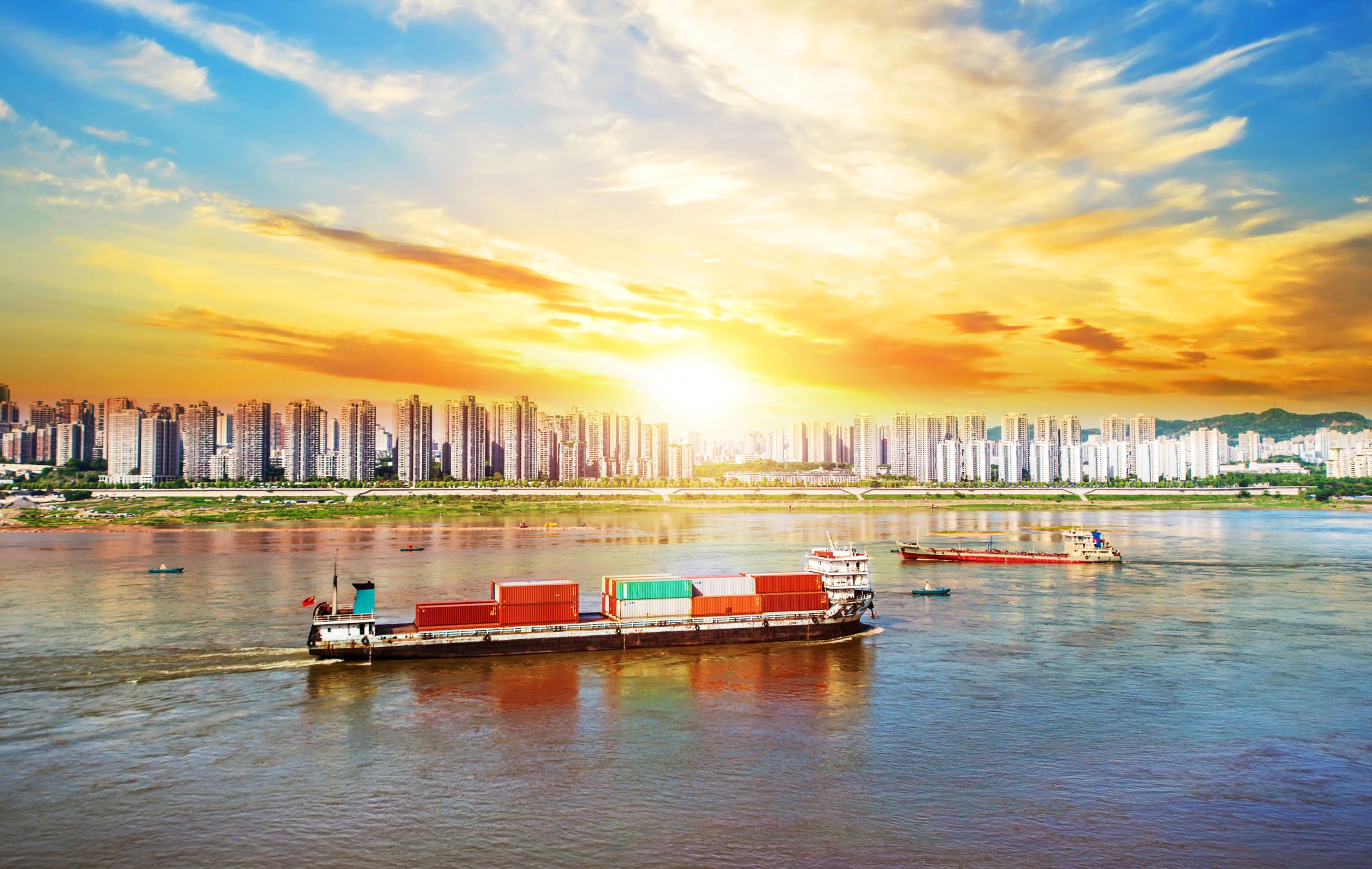We’ve been mulling over some big questions lately—how can industries truly transform in the face of climate change, and what does that mean for us?
According to a recent Reuters report, Singapore—recognized as the world’s largest fuel oil bunkering hub as of 2023—is preparing for a significant transformation. An earlier report projected that marine biofuel demand in Singapore could double by 2025, reaching nearly 1 million metric tons from 2023 levels.
That’s not just a number. It’s a signal that our shipping industry might be turning a new page in its fight against carbon emissions.
This makes us wonder about the challenges and possibilities that lie ahead for shipping companies worldwide. After all, when we talk about fuel and emissions, we’re discussing a topic that touches all of us, whether we’re directly involved in maritime trade or simply concerned citizens watching our planet’s future unfold.
The New Era of Shipping Fuel
Louise Tricoire, the vice president at TotalEnergies Marine Fuels, put it plainly:
“Looking ahead to 2025, we foresee a potential surge in biofuel (bunker) demand in Singapore, potentially nearing 1 million metric tons per annum.”
These words resonate with anyone who’s ever worried about rising fuel costs or the environmental toll of our global trade. It goes beyond merely swapping fuels—it calls for a complete rethinking of how ships are powered.

An increasing number of shipping companies are now testing marine biofuel as a substitute for conventional fuel oil. This is not just an experiment. It represents a tangible step toward reducing harmful emissions. These changes could significantly reduce the carbon footprint of an industry long known for its pollution.
What This Means for Our World
This news stands out as a prime example of how industries can pivot. The idea that something as large-scale as marine fuel can be rethought, with clear data backing the benefits, makes you realize that meaningful change is possible.
When the Global Centre of Maritime Decarbonisation conducted trials showing these reductions, it wasn’t just good news—it was a beacon of hope.
Testing the Waters for Change
Beyond trial in Singapore, biofuel bunkering has been gaining traction in other major hubs. In 2023, biofuel sales in Singapore more than tripled, which indicates a growing appetite for cleaner alternatives.
Meanwhile, companies like KPI OceanConnect is expanding their marine biofuel trade to additional ports worldwide in order to meet rising demand prompted by regulatory changes such as FuelEU Maritime. This global momentum suggests that the shift toward lower-carbon fuels is part of a larger push.
With initiatives like the EU Emissions Trading System (ETS) and stricter carbon intensity targets on the horizon, shipping companies across continents will be incentivized—or even compelled—to switch from conventional residual fuels to alternatives that cuts emissions.
Challenges and Roadblocks
However, the path forward is not without hurdles. Current market conditions reveals a persistent price gap: bunker prices for the B24 biofuel remain at least US$200 higher than those for conventional 0.5% low sulphur fuel oil. This significant premium is a major roadblock, as it could discourages widespread adoption unless technological improvements and economies of scale helps reduce production costs.
Moreover, industry experts emphasise the need for expanded infrastructure. Enhanced storage facilities, improved barging and tanking capabilities are essential to accommodate the increased volumes of biofuels. Without these investments, the full potential of biofuel adoption may be limited.
A Global Push for Decarbonisation
The movement toward biofuels in shipping is part of a broader global effort to reduce greenhouse gas emissions. Regulatory measures like FuelEU Maritime are set to drive demand further. The regulation mandates a 2% reduction in greenhouse gas intensity for ships operating in EU ports starting in 2025, with ambitions to reach an 80% reduction by 2050.
This kind of policy, along with other regional and national initiatives, will likely accelerate the transition to greener fuels not only in Singapore but across major maritime hubs worldwide.
As production scales up and new infrastructure come online, further research suggests that competition for feedstocks—such as used cooking oil—could initially drive prices higher. Over time, however, improvements in processing and supply-chain efficiencies should help narrow the cost gap between biofuels and traditional fuels.
Looking Ahead
Change in an industry as large as maritime shipping will not happen overnight. It will require a series of calculated steps—investing in new infrastructure, fine tuning production methods, and embracing supportive regulatory frameworks.
Yet, the current trajectory, as evidenced by Singapore’s ambitious biofuel targets and pioneering initiatives like TotalEnergies’ B100 delivery, are a clear sign that the shipping industry is charting a new course toward decarbonisation.
Ultimately, the transformation of marine fuels is more than a technical adjustment. It’s a testament to how industries can reimagine traditional practices in the face of climate change. With a growing global push for lower-carbon options, the signal is clear: change is coming, and it’s coming fast.
Glossary
Bunker Hub: A major port or center for the storage, supply, and distribution of biofuels (bunkers) to ships. Singapore is recognized as the world’s largest bunker hub.
Bunkering: The process of supplying fuel to ships. It involves delivering and transferring bunker fuel (often heavy fuel oil) from storage facilities to vessels.
Marine Biofuel: Renewable fuel produced from organic materials (such as used cooking oil or agricultural waste) that can be used to power ships, offering a lower-carbon alternative to conventional fossil fuels.
B100 Delivery: A term used to describe the delivery of 100% biofuel—fuel that is entirely derived from renewable, bio-based sources with no fossil fuel content.
FuelEU Maritime: A European Commission initiative aimed at reducing the greenhouse gas intensity of fuels used by ships operating in EU ports. It mandates gradual carbon intensity reductions to promote cleaner fuels.
EU Emissions Trading System (EU ETS): A cap-and-trade system established by the European Union that sets a limit on total carbon emissions. Companies can buy and sell emission allowances, incentivizing lower emissions.
Alternative Fuels: Fuel types that provide a cleaner or lower-carbon alternative to traditional bunker fuels. These include LNG, methanol, biofuels, ammonia, and others used to reduce the environmental impact of shipping.
Price Gap: The difference in cost between two types of fuels. In this context, it refers to the significant premium (around US$200 per metric ton) that biofuel variants like B24 command over conventional low-sulphur fuel oil.
Feedstocks: Raw materials used in the production of biofuels. Common feedstocks include used cooking oil, agricultural waste, or other organic materials that are processed into renewable fuels.
Decarbonisation: The process of reducing carbon emissions from an industry or activity. In maritime transport, decarbonisation involves shifting to cleaner fuel alternatives and implementing energy efficiency measures to lower the overall carbon footprint.
Citations
- Reuters – Marine Fuel Sales Record High in 2024:
- https://www.reuters.com/markets/commodities/marine-fuel-sales-singapore-bunker-hub-hit-record-highs-2024-2025-01-16/
- Reuters – Marine biofuel premiums soften at top bunker hub in Singapore:
- https://www.reuters.com/business/energy/marine-biofuel-premiums-soften-top-bunker-hub-singapore-sources-2024-02-07/
- Global Centre for Maritime Decarbonisation – Learn more about emission reduction trials:
- https://www.globalcmd.org
- European Commission – FuelEU Maritime regulation & EU ETS information:
- https://ec.europa.eu/clima/policies/ets_en
- Maritime and Port Authority of Singapore (MPA) – Official statistics and reports:
- https://www.mpa.gov.sg
- Reuters – KPI OceanConnect targets more ports for marine biofuel sales:
- https://www.reuters.com/markets/commodities/kpi-oceanconnect-targets-more-ports-marine-biofuel-sales-2024-10-11/
- European Commission – Decarbonising maritime transport (FuelEU Maritime):
- https://transport.ec.europa.eu/transport-modes/maritime/decarbonising-maritime-transport-fueleu-maritime_en
- European Commission – EU Emissions Trading System (EU ETS) information:
- https://climate.ec.europa.eu/eu-action/eu-emissions-trading-system-eu-ets_en
- Reuters – EU’s cleaner marine fuel rules are inflationary, shipbrokers say:
- https://www.reuters.com/sustainability/climate-energy/eus-cleaner-marine-fuel-rules-are-inflationary-shipbrokers-say-2025-01-06/


